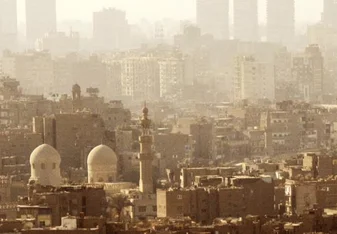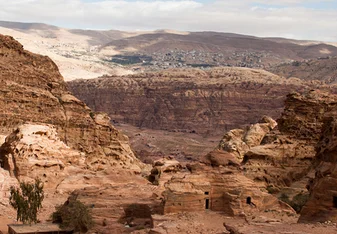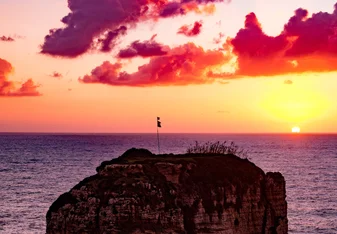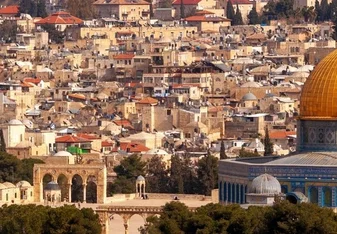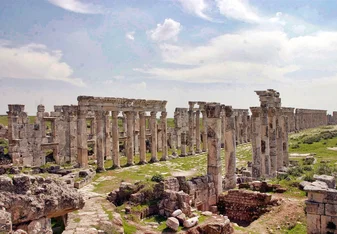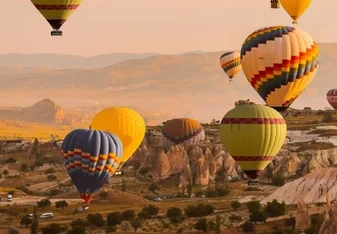Volunteer Programs in Israel
About
Israel sits on the eastern shores of the Mediterranean Sea. The country’s multi-cultural population of 5.8 million encompasses Jews, Arabs, and Druze as well as émigrés from across the world. Considered the Holy Land by Christians, Jews, and Muslims, there are sacred sites here for all three religions, from the Wailing Wall and Haram al-Sharif in Jerusalem to the birthplace of Jesus in Nazareth.
Israel has not been without conflict in recent history. The West Bank and Gaza are disputed territories claimed by both Israelis and Palestinians who wish to create an independent state. This has caused frequent violence to erupt as both sides fight for control of the areas. Similarly, the Golan Heights is regarded internationally as Syrian land that is under Israeli military occupation. Due to these ongoing issues, community development and peacebuilding volunteer programs exist to help bridge the gap between Israelis, Palestinians, and the Druze of Syria.
You’ll discover many other practical volunteering opportunities in Israel as well such as helping at grape harvests or teaching English in remote villages.
Project Types
Countrywide opportunities for volunteering in Israel cover all options from teaching in cities to working in remote countryside on a kibbutz. Volunteers can also promote peace in the disputed territories of the West Bank, Gaza, and the Golan Heights.
Environmental Conservation
There’s much you can do as a volunteer conservationist in Israel. Options range from helping to preserve coral reefs around the Red Sea to assisting wildlife authorities in the Arava Desert, or building sustainable cabins in the mountains. Short-term projects might see you working on a kibbutz grape harvest or caring for alpaca herds in remote countryside little changed since biblical times.
Immersion in Communities
Week-long immersive guided tours lead volunteers through Palestinian communities in Galilee and the occupied Syrian Golan Heights. These permit volunteers from across the world to build relationships with Palestinians on both sides of the Green Line and to understand their culture, customs, and heritage.
You can also study the intricacies of the Israeli-Palestinian conflict while living in Jerusalem or working at a West Bank community center.
Working with Children
If you enjoy working with kids, spend up to a year supporting inner-city refugee youngsters from Darfur, Eritrea, and Southeast Asia. Teach in a Tel Aviv school, entertain and educate with new games and sports, or provide medical care for homeless families living on the streets.
Volunteer Teaching
A lack of spoken English is a drawback for many Israelis seeking employment, so brush up on your people skills with a 10-month program teaching English in villages far away from the sophisticated cities. Your Hebrew will improve in leaps and bounds and you’ll gain satisfaction from helping rural people to increase their job prospects.
Planning Your Trip
Justly proud of its reputation as a multi-cultural melting pot, Israel is also a land of contrasts. Almost 90% of its people live in its cities, which are an enticing combination of ancient and thoroughly 21st Century, but outside the towns the economy is largely agrarian. Farming is run along cooperative lines and there’s always a huge demand for volunteers to work on collective farms and kibbutzim.
Where to Volunteer
You might choose to volunteer on inner-city projects in Tel Aviv, Haifa, Jaffa, or Jerusalem. However, there are plenty of programs in rural areas of the country, on cooperative-run and community farms or settlements.
Wherever you choose to volunteer in pocket-sized Israel, an efficient bus service and a limited railway system can quickly transport you to any destination across the country -- except on Shabbat, when there are almost no services.
Housing & Accommodation
When volunteering in Israel, your accommodation often comes as part of the package with your program. Alternatively you may prefer to live with a local family for a full immersion in Israeli culture and a crash course in Hebrew.
You could find a private flat share or a studio apartment in one of Israel’s happening cities, but be warned -- accommodation can be expensive and really hard to find so allow a couple of months to find somewhere in your price range. Some people go through agents but you could also watch social media to track down a home.
If you’d rather live somewhere rural, there are hostels and kibbutzim collective farms catering for students and volunteers all over the country.
Language Requirements & Tips
Hebrew is the national language of Israel, and Arabic is also widely spoken. Most Israelis speak English too, so you’ll find no difficulty making yourself understood. However, it’s only polite to learn a few key Hebrew phrases and that’ll also help you to ease your way into the culture.
Packing Tips
Winter in Jerusalem can be chilly, with temperatures down to around 40°F at night, so bring long pants, layers, and a waterproof jacket for winter drizzle.
However, Israel is mostly a sunny country with hot summers above 80°F and intense humidity in seaside Tel Aviv. So come prepared with loose cotton clothing, swimming costumes for trips to the Dead Sea, and stout walking shoes for sightseeing. You’ll also be needing a pair of sun shades, sun cream, and a sun hat.
Additional Tips
As Israel is a Jewish state, you’ll soon find that all public transport, public offices, and most businesses are closed on Shabbat, which begins at sundown on Friday afternoon and ends at sundown on Saturday evening. Tel Aviv is the secular exception to this; its beaches and bars come alive on Saturdays.
Israelis are largely a very informal bunch and dress casually even for work, so guys leave the suits and ties at home but remember you’ll need a yarmulke (head cover) for Shabbat and religious sightseeing.
Likewise, girls are expected to dress modestly at churches, mosques, and the Wailing Wall as well as during Shabbat, so skirts with hemlines below the knee, shawls or scarves, and covered shoulders are the order of the day.
Take US adaptors and transformers. Israeli voltage is 220-240 volts, which is higher than in the USA.
Visa
US citizens can travel to Israel for up to three months without a visa, as long as their passports are valid for six months from the date of travel.
A B/4 Visa is needed for volunteers to enter Israel. Applications for this visa are submitted by your host program and you’ll need your visa before arriving in the country. The B/4 is valid for up to three months and if you wish to extend it, you (or your program) must submit an application at your local regional population administration office of the Ministry of the Interior.
There are stringent regulations for the issuing of a B/4 visa and the procedure takes 14 working days. You’ll need the following:
- Visa application form, completed and signed. You can download the form here.
- A passport valid for at least six months, with three double blank pages.
- A recent, clear, passport photo (5cm x 5cm) on a white background and high-quality paper.
- A return flight booking or ticket for your journey.
- Six months’ worth of bank statements; you’ll need to show that you can support yourself during your stay in Israel as people entering on a B/4 visa are not permitted to work for a salary.
- The visa application fee of US$23 and a service charge of US$27.
- The invitation letter from your host program.
- Travel and medical insurance to cover you for the duration of your stay in Israel.
At point of entry, Israel now provides tourists with Electronic Gate Passes with all their data and visa information recorded electronically on them so their passports are no longer stamped. These cards are your ID while in Israel, so keep them to hand at all times.
However, technical hitches sometimes occur. If the system is down when you enter Israel and you’re planning to travel on to Arab countries, ask customs officials not to stamp your passport. Jordan and Egypt are both exceptions to this rule.
Health & Safety
Despite the ongoing Israel-Palestinian conflict and underlying unease with its near neighbors Syria and Lebanon, Israel is considered one of the more stable countries in the Middle East.
Health
Israel is known the world over for its excellent health-care system but as a visitor to the country, you’ll need healthcare insurance. Hopefully you won’t encounter any serious health issues traveling there, but it’s advisable to be up to date with routine vaccinations including MMR, chickenpox, diphtheria, tetanus, and polio.
If you’re traveling through Gaza or the West Bank, both typhoid and hepatitis A jabs are recommended to counteract contaminated food or dirty water. Rabies is also present in some dogs and bats, so if you’re volunteering in these and other remote areas, you should consider a rabies vaccination too.
Take anti-histamine and mosquito repellent as well as high-factor sun cream for summer, when the mercury can rise temperatures above 85°F in some areas. Drink plenty when sightseeing (especially at Masada) or working outside to stave off dehydration.
It’s not a good idea to go skinny-dipping in the sea in the summer jellyfish season. Stings hurt and may require medical attention.
Some pharmacies stay open after hours and there’s always one operating on Shabbat. Emergency services are fast and effective; to call an ambulance, dial 101 from your mobile. The number is free of charge.
Safety
Security is very tight in Israeli airports and transport termini and bags are often spot searched. Keep your Electronic Gate Pass with you at all times for identification purposes.
Despite this—or perhaps because of it—Israel is a safe country. As long as common sense is exercised, single girls can walk the streets at night and feel relatively safe. As most young people are conscripted into the army between the ages of 18–21, young soldiers carrying guns are a common sight in the streets and on the beaches.
However, don’t be tempted off marked pathways in the Golan Heights or around the Dead Sea, where minefields from years of wars have not been cleared. They cause serious injury every year to tourists and locals alike. Likewise the US Government warns against all travel to the Gaza Strip.
If you are the (unlikely) victim of a crime, call the free emergency line (101).
Scams
Don’t accept the first price offered at the souks and outdoor markets. Bargaining is expected.
Best Cities in Israel for Volunteering
If Israel is on your mind, you have to choose: Would you rather experience the bohemian bars and beach scene of Tel Aviv or marvel at Jerusalem’s rich history? Do you want to spend your days off diving the coral reefs off the shores of Eilat, or hiking in the pine-covered hills around Safed?
Below you'll find some of the most loved cities among the Go Overseas community, as well as destinations that provide the biggest variety of programs for volunteering in Israel.
Eliat: coral reefs & festivals
Set on the Red Sea at the southern tip of Israel, go to Eilat if you love snorkeling, diving, kite surfing, and swimming in turquoise waters. A good-time city of 85,000, the heart of Eilat is Tayelet promenade, which runs the length of North Beach and is home to market stalls, street artists, and some great restaurants.
Safed: mountains & mysticism
This city, located in the Galilee region of northern Israel, is known for its many art galleries, ateliers, cobbled alleyways and stone stairways of the old town, and for being the center of Kabbalah since the 16th century.
If you have some medical experience you can volunteer with Israel’s version of the Red Cross, Magen David Adom. There are also city soup kitchens, food banks, and care homes to help out at. The alternative “vegetarian village” of Amirim is also near Safed and offers various volunteering opportunities.
Jerusalem: history & holy sites
To enter Jerusalem's Old City is to visit a world where incense and rugs go for sale on every corner, vendors serve up fresh-squeezed pomegranate juice and sizzling falafels, and graffitied alleyways lead to ancient holy site upon ancient holy site. In other words, Jerusalem is a great place to explore (and volunteer!)
Tel Aviv: sun, surf, & startups
With all of its palm trees and the Mediterranean sea breezes, Tel Aviv feels closer to Barcelona, than it does Jerusalem. Home to nearly half a million people and a ton of great startups, you'll find major art galleries like Tel Aviv Museum of Art, and UNESCO-worthy Bauhaus buildings (like the Bauhaus Center). There are great bars and cafes, glinting glass skyscrapers, food markets, and of course, a 9-mile long coastal strip of white sand and blue sea.
Haifa: gardens & maritime vibes
Home to the National Maritime Museum, the Hecht Museum, Tikotin Museum of Japanese Art, and the French Stella Maris Carmelite Monastery, there’s lots to see and do in Israel’s third largest city.
Volunteer in Haifa and you’ll also have opportunities to visit nearby areas like Nazareth and Caesarea National Park. It’s also home to one of Israel’s largest archeological sites, and Jerusalem and Tel Aviv are only a day trip away!
















